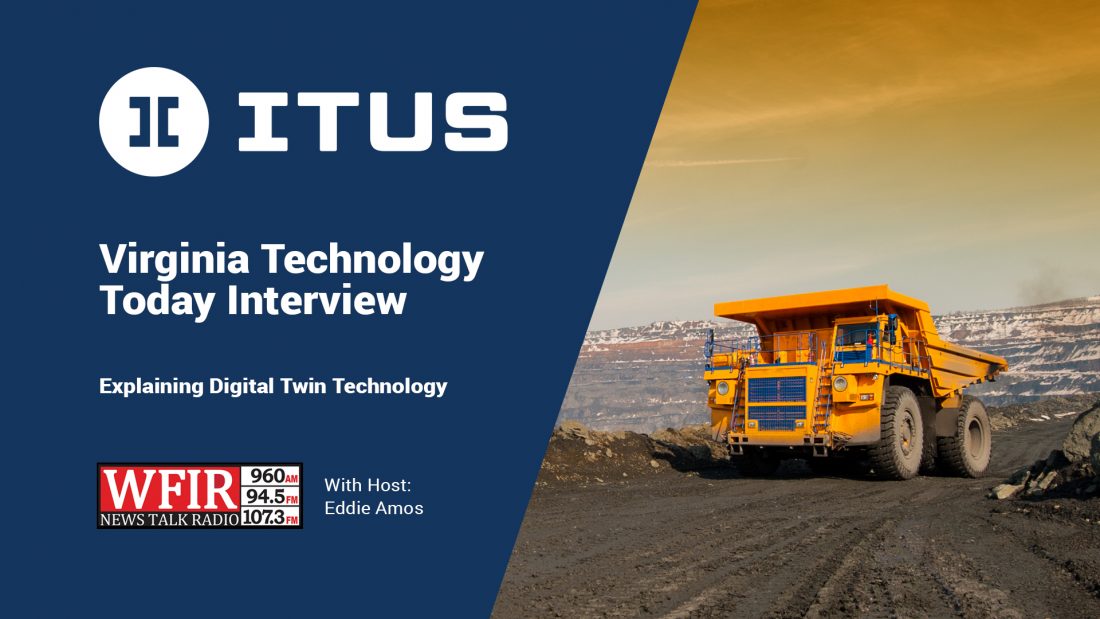Podcast: Why Are Digital Asset Twins Important?
Introduction
What is a digital asset twin, why are they important, and how are they used in driving successful asset performance management programs? Listen to this podcast or read the transcript below as Eddie Amos from Virginia Technology Today interviews Jason Cline and Joe Nichols on this topic and the recent launch of their new company – Itus Digital.
What is a Digital Twin?
Eddie: Jason and Joe tell us more about ITUS and what is a Digital Twin?
Joe: Let’s start by defining the concept of a Digital Twin. A Digital Twin is a virtual representation of a physical object. It is usually modeled in software applications to predict future behavior. As we are in a very active hurricane season, most of you have probably recently seen examples of Digital Twins. As Hurricanes form, systems develop forecast models that define the expected path or track of the hurricane. Weathermen usually refer to these models as spaghetti plots. A type of digital twin that models hurricanes generate each one of the lines in the spaghetti plot.
In this example, the digital twin knows about the hurricane’s current characteristics, such as wind speed & direction. Also, the twin monitors other environmental conditions that can influence hurricane behavior– elements such as water temperature and upper-level winds. And it has historical tracking knowledge on how past hurricanes. Finally, all this information is then analytically modeled to predict future hurricane behavior. That’s a Digital Twin!
Our Business
ITUS Digital provides Digital Twin software for industrial manufacturing companies. Our platform analytically models industrial equipment to predict how it will behave in the future. We model how the manufacturer designed the equipment and monitor current conditions while the asset is operating. When we detect a potential problem, we provide a warning and direct activities to minimize disruption to the business.
Eddie: Why are Digital Twins important?
Joe: Our customers manage large Industrial equipment, which can be complex and very expensive to maintain. Unexpected failures can impact our customers’ ability to meet their production demands, create very costly repairs, and potentially harm workers or the environment. We can model equipment behavior, predict potential failures, and avoid expensive accidents with a digital twin. When an organization applies this approach to large equipment populations, they can save millions of dollars by preventing equipment downtime and ensuring the right maintenance program to avoid equipment failure.
What Makes Itus Digital Different?
Eddie: Several companies in the market claim to have this technology – why are you different?
Jason: Because of the complexity and cost of developing and managing a digital twin, companies have reserved this approach for very expensive or highly critical equipment. Think aircraft engines, satellites, and wind turbines. ITUS has defined a platform that simplifies the process of creating and managing a digital twin. Furthermore, we have taken advantage of new computing methods and approaches to connect with equipment sensors and data systems. This technology allows us to offer an affordable platform that customers can use on the most common equipment in many types of industrial facilities.
Now organizations like local water authorities can use digital twins to ensure water delivery to our homes. For instance, utility companies can monitor transformers in substations and predict potential failures before the lights go out. And, smaller manufacturing facilities can reduce the amount of money they spend maintaining equipment and improve productivity. We believe we have built capabilities that can rapidly expand the use of digital twins in the industrial world.
Why Start a New Company?
Eddie: Both you and Jason are long-time software professionals who played important roles in the success of Meridium. So why go the startup route instead of working for a more established organization?
Joe: First, let me state that our experiences at Meridium and later General Electric were amazing. Consequently, we were able to experience starting and growing a local business with Meridium and then how to deliver software at a global scale with GE. As our careers progressed, we got further and further from the customers we had enjoyed working so closely with at Meridium. Also, we were limited in how much we could invest in innovating on new approaches and business models. So, our team had a significant amount of experience and new ideas on solving some huge industrial problems effectively but no easy way to execute them. The time was right to build a company that allowed us to get back to our roots, work closely with customers, and create innovative software solutions right here in the region.
Where is Itus Digital Heading?
Eddie: Where do you see ITUS in five years?
Jason: Having worked in the region over the last 20 years, we believe this is a great place to start and grow a software business. There is a tremendous amount of local tech talent. The universities continue to provide new graduates knowledgeable in programming, data science, and advanced manufacturing. All of us have witnessed many software companies thrive in the region. ITUS has recently released our software technology, and the response from the market has been amazing. We expect to see rapid expansion in Itus Solutions over the next year, providing the foundation for significant company growth. Our goal is to be a leader in the Industrial Digital twin market in five years, with our global headquarters located right here in Roanoke.
What Has Your RAMP Experience Been Like?
Eddie: We had Mary Miller on the show recently talking about the new cohort at RAMP. She mentioned that ITUS was in the program. What has the RAMP experience been like?
Joe: The RAMP experience has been great. It has challenged us to assess our customers, their problems, and what our solutions need to provide. This process helped shape our solution’s capabilities. Also, the program has given us the vital infrastructure to help us establish our business. For example, its simple but essential elements, such as a great working environment, internet access, and easier access to regional and state-sponsored funding sources, have considerably helped us.
RAMP’s support gave us a foundation on which we are already growing. One of the most significant benefits of RAMP has been the introduction into the regional tech community. I am amazed at the engagement from the local tech community and our program mentors, how supportive they have been, and their desire to see us succeed. The coaching, mentoring, and support we have received have been exceptional, and we are fortunate to be part of the program.
How Can the Roanoke Community Help You?
Eddie: What help do you need from the local community?
Jason: If you took a map of the region, centered it on Roanoke, and drew a circle with a 100-mile radius, you would be amazed at the number of industrial manufacturing organizations that reside here. Water treatment facilities, power utilities, paper mills, chemical plants, to name a few. Many of these facilities can most likely take advantage of our solutions to reduce costs and prevent equipment failures. We would be interested in working with them to see how we can help them save money and be more predictable in their operation. The community can help by getting the word out that a local company is providing innovative solutions to help them manage their assets.
Eddie: Jason and Joe, unfortunately, we are out of time. Thank you for updating us on RAMP and ITUS Digital. I want to thank our Executive Producer Joey Self for making the show possible. So, until next week, I’m Eddie Amos, and this is Virginia Technology.



